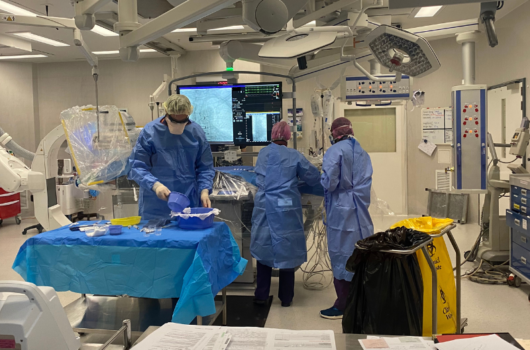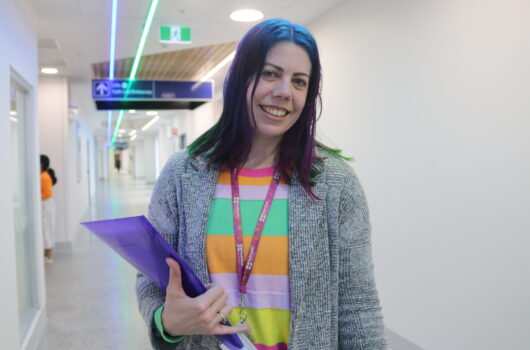Studying the impacts of occupational violence
A prospective PhD student is undertaking a new study understanding clinical aggression, or what constitutes occupational violence and aggression (OVA) for nurses in regional hospitals.
Probationary PhD candidate Christine Trotman’s study titled Understanding Client Aggression: Regional hospital generalist nurses experiences of OVA is focusing on medical and surgical wards.
Her study is being industry-funded between Latrobe Regional Health and Federation University
The former nurse and retired chief executive of several smaller Gippsland health services said the majority of research focuses on OVA in emergency departments, mental health and aged care units.
“But very few studies examine the incidence and impact of OVA for generalist nurses,” Christine said.
“Yet we know the incidence of OVA in general wards is significant and this study aims to address this research gap.”
The study is tying-in with an LRH awareness campaign to help reduce OVA at the hospital, being led by a dedicated OVA team.
Christine hopes to interview LRH generalist nurses in the next couple of years to gather and analyse data around their experience of OVA.
She hopes her findings will help inform departmental policies to mitigate OVA in the workplace.
However, Christine also urges more staff to report any incidence of OVA and take advantage of the LRH Employee Assistance Program and Staff Wellness Centre.
“Under-reporting of OVA incidents by nurses is thought to be considerable, which masks the prevalence and consequences of OVA,” she said.
Christine said previous research shows that OVA incidents can be caused by a person’s cognitive impairment as a result of disease, illness, alcohol or other drugs. Staff shortages which increase the length of time to access a service, are also contributing factors.
She said impacted nurses often go home with physical or mental health injuries, leading to increased absenteeism, burnout, and with some even leaving the profession altogether.
“I remember one nurse some years ago wanted to leave the profession after being a victim of OVA, she said she couldn’t return to work and be a nurse anymore,” Christine said.
“This really troubled me, we need to look after our staff better than this.”
PhD Clinical Supervisor and LRH Director of Education, Research and Quality and Chief Nurse Anita Raymond said the study is a part of the overall work being done at LRH to help reduce OVA.
“This project is a key research priority for LRH and will complement the OVA campaign works and strategies occurring at LRH through our recently appointed OVA team,” Anita said.






